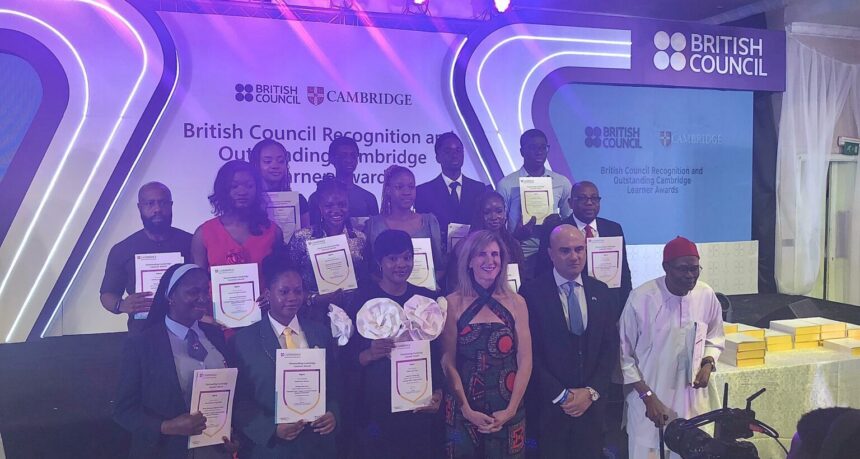Twelve Nigerian students have been ranked best in English globally at the 2024 Cambridge O Level and IGCSE examinations, out of 16 Nigerian students recognised as ‘Top in the World’ for achieving the highest standard in a single subject.The announcement was made on Thursday at the British Council Recognition and Outstanding Cambridge Learner Awards, hosted by the International Education group at Cambridge University Press & Assessment in partnership with the British Council in Lagos.
In the 2024 IGCSE June series, Ohimal Okoye was named best in English as a Second Language (Count-in-Language). For the November series, Alvin Ebiuwhe, Amanda Enechukwu, Emmanuella Oze, Grace Sanya, Kamsiyochukwu Onochie, Kenechukwu Morayo Uba, Mercy Abilogun-Wole, Moboluwaduro Asalu, Ololade Olayinka, Tanamera Bassey and Ifunnaya Onaga emerged global best in English as a Second Language (Speaking Endorsement).
Other Nigerians recognised as ‘Top in the World’ include Babafemi Akinyera, best in English Language for Cambridge O’Level November 2024; Temidola Odufuye, best in Sociology for IGCSE June 2024; Momoreoluwa Afolabi, best in Economics for Cambridge O’Level June 2024; and Kobamoye Kobe Odum, best in Agriculture for IGCSE November 2024.
In total, 99 learners from 44 Cambridge International Schools across Nigeria received awards in categories such as ‘Top in Nigeria,’ ‘High Achievement,’ and ‘Best Across.’ Speaking at the event, Regional Exams Director for Sub-Saharan Africa at the British Council, Deep Adhikari, praised Nigerian parents for their investment in education, noting that Nigeria ranks among the organisation’s top five operations globally.
“Nigeria is our top five operation in the world and there are so many Nigerian students who are coming out as best in the world,” he said. Simon Field, Deputy Head of Mission at the British Deputy High Commission in Lagos, advised the students, stressing that education remains a powerful tool for creativity, human progress and national development. He warned against misinformation online, noting that formal education provides the critical thinking skills necessary to filter information effectively.
Juan Visser, Regional Director of Cambridge International Education, highlighted that the future of Cambridge examinations would balance digital and paper-based formats, especially in regions with limited access to technology. He said while digital testing will expand, paper-based exams will remain available, with mock digital exams already being piloted.Visser added that while technology is central to education, the key is ensuring learners retain critical thinking skills and the human element in learning.









